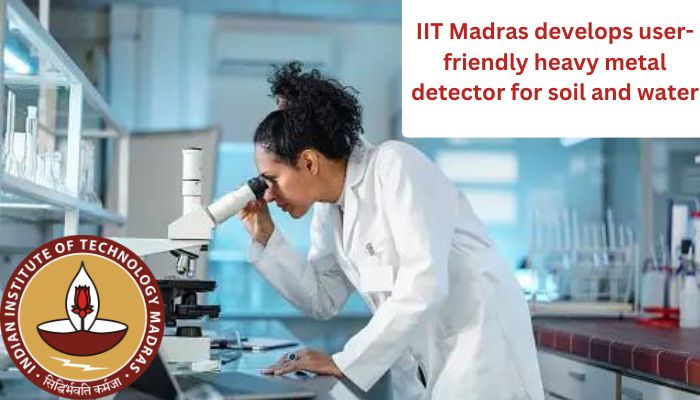IIT Madras researchers are close to unveiling a portable device that can identify heavy metals in soil and water, providing an easy-to-use solution for farmers and rural communities.
Testing in Real Time: From Lab to Field
One of the challenges in safeguarding public health and environmental integrity is the lack of accessible, efficient, and user-friendly tools for detecting contamination. Existing high-end methods like ‘Inductively Coupled Plasma-Optical Emission Spectroscopy’ (ICP-OES) require advanced laboratories and lengthy procedures, making them impractical for non-experts and farmers. However, the IIT Madras team has applied for a provisional patent for the ‘Polymeric thin film-based heavy transition metal detector,’ offering hope for a tool that can be operated by anyone interested in assessing soil and water quality.
Navigating the Waters of Environmental Change
In India, rural communities, estimated at over 36,000 by the Union Ministry of Jal Shakti, Government of India, are at risk from water sources contaminated with heavy metals, fluoride, arsenic, and other pollutants. Soil salinity due to heavy metal presence is also harming global food security by reducing crop yields. Dr. Sreeram K Kalpathy, Associate Professor, Department of Metallurgical and Materials Engineering at IIT Madras, emphasized the urgent need for technological solutions to detect and measure heavy metal concentrations given India’s heavy reliance on agriculture.
Building a Sustainable Future Through Technology
Dr. Sreeram K Kalpathy and Dr. Tiju Thomas, along with project scientist Vidhya KV, are leading an innovative team with a mission to empower farmers with essential information about soil and water quality. This knowledge will help farmers make informed decisions regarding crop cultivation and necessary interventions in the face of heavy metal contamination. Dr. Tiju Thomas explained that their technology works by adsorbing metal ions onto thin polymer films in the water or soil wash water samples, with results determined by measuring infrared spectroscopic signals using a calibrated database. Vidhya KV, the Project Scientist, also highlighted the scientific novelty of their technology and its minimal sample preparation requirements compared to traditional techniques like ICP-OES.
Progressing Towards a Sustainable Future
Significant efforts are being made to transition these innovative methods from the laboratory to the field. Collaborating with the Rural Technology Action Group at IIT Madras, the team has analyzed water samples from various temple tanks in Rameswaram, Tamil Nadu. Furthermore, they are conducting validation tests using various local and non-local soil and water samples. With these groundbreaking developments, IIT Madras is working toward a future where agriculture and the environment can coexist without compromising human health.

